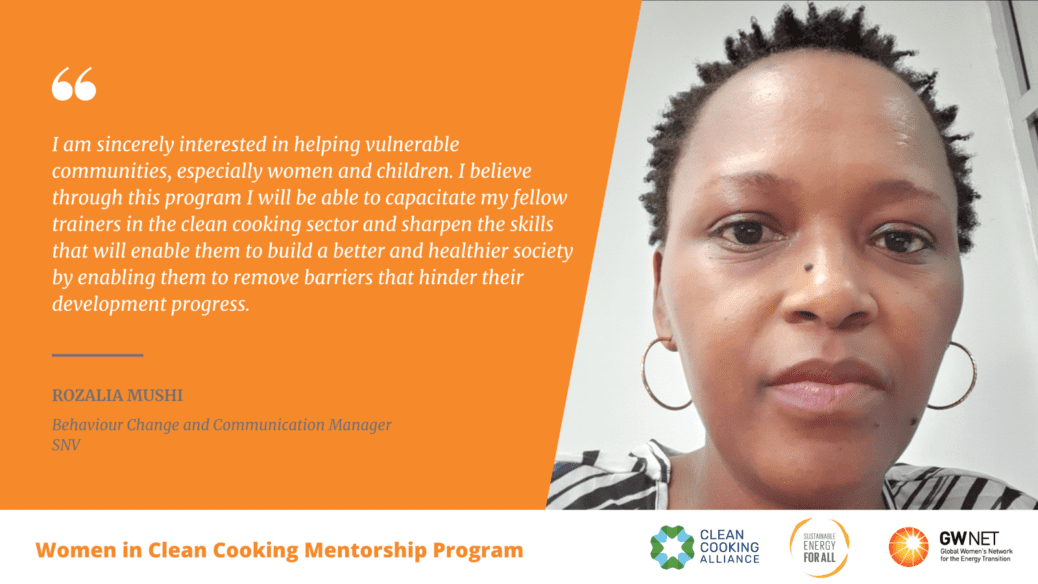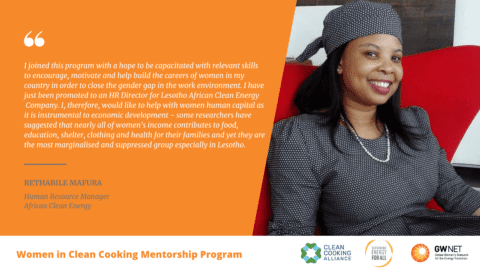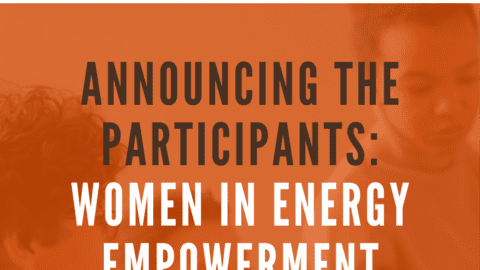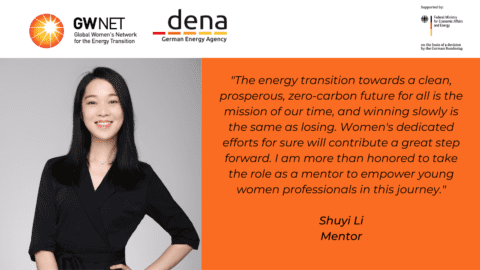GWNET brings you the 7th instalment of the “Meet the Women in Clean Cooking” series which celebrates the work and achievements of the women who are part of the Clean Cooking Mentorship Program. This program is made up of 30 mentee-mentor tandems, with mentees from over 15 countries. Meet Clean Cooking mentee, Rozalia Mushi, Behaviour Change and Communication Manager at SNV in Tanzania
1) Tell us a little about yourself. What do you love most about what you do?
I am a hard-working person with a steady source of motivation that drives me to attain my goals. My passion has led me to stretch myself daily and search for new skills that help me to always achieve better.
I am also ambitious and thrive on challenges. I set goals for myself, and search for opportunities to do better and achieve greatness. I see myself as a natural leader because I have been naturally promoted to different leadership positions in different settings, one of the reasons behind this is that I am result-oriented and a team builder.
I love helping and empowering the most vulnerable and marginalized communities, especially women to enable them to improve their daily income and family health.
2) What were your goals when you started working in clean cooking? How have these evolved?
3) What are the opportunities for clean cooking in your country?
There are a lot of clean cooking opportunities in Tanzania caused by:
- Inaccessibility of improved and affordable clean cooking products especially in rural areas, resulting in low consumer demand for clean cooking products including modern stoves and fuels. More effort is required on awareness creation on clean cooking and supporting the existing suppliers to develop, deploy, and strengthen the Improved Cookstove (ICS) supply chain.
- The lack of affordable ICS technologies that can be recognized by the government as National ICS. This is due to the existing gap in investing in ICS, manufacturing, and innovating. Hence there is a need for mobilizing investment to build a chain of scalable ICS businesses capable of producing and delivering affordable and appropriate ICS, especially to rural communities while fostering an enabling environment for industrial growth through advocating for expectable policies.
- Government initiative on developing a biomass stove standard. The Tanzania Bureau Standard has come up with a new biomass stove standard that encourages innovation, though it still too expensive for local producers to afford it.
5) What advice would you give to women hoping to join the clean cooking sector?
The truth is there are lots of opportunities for women who join the clean cooking sector compared to other sectors that include:
- Knowledge development; there are lots of learning programs including mentorship programs and learning by doing i.e. cooking practices and the use of clean cooking products which could help women benefit and improve their family health and daily income.
- Income-generating opportunities; there are lots of opportunities within the clean cooking sector such as manufacturing, marketing, and supplying clean cooking products. I highlight this because I understand that women always have a big network i.e women go round groups, religious and neighbors groups which can be used effectively to earn more income. Women can also use the skills and knowledge gained to serve their family budget and extend their business capital etc
Read more about GWNET’s mentoring programmes here.











